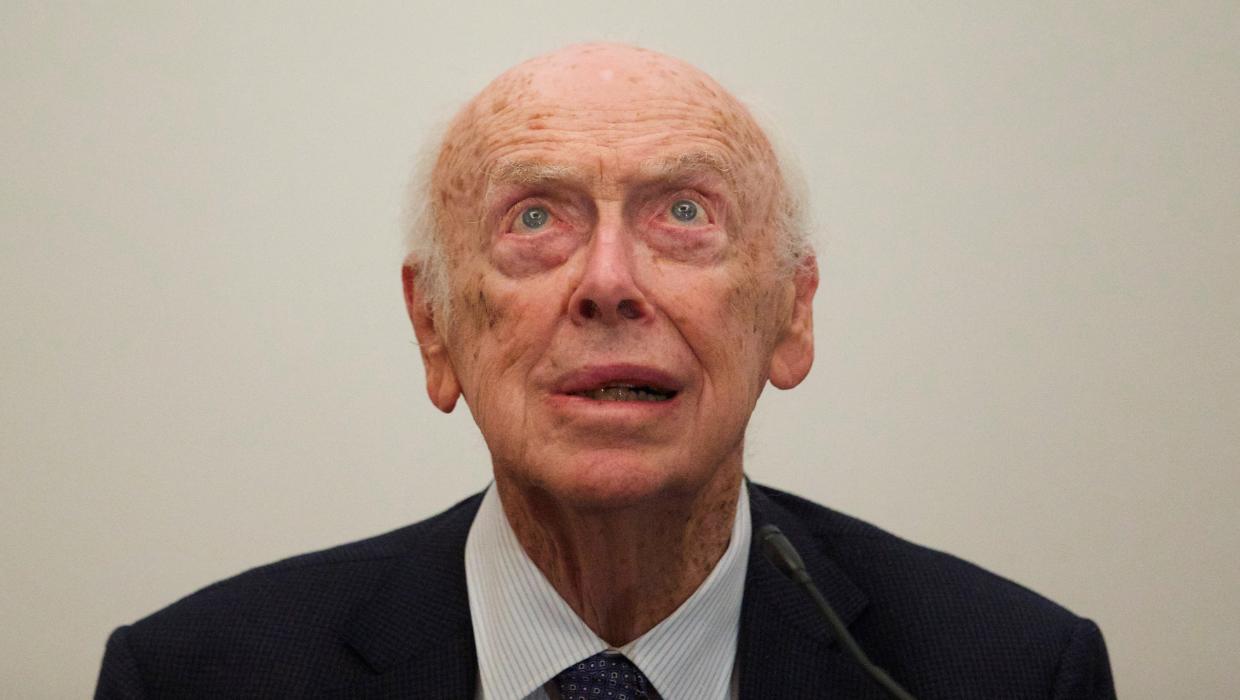Science
Renowned Scientist James Watson Passes Away at 95

James Watson, the American geneticist renowned for co-discovering the double helix structure of DNA, has died at the age of 95. His passing marks the end of a significant chapter in the history of molecular biology. Watson’s groundbreaking work in 1953 alongside Francis Crick revolutionized the understanding of genetics and earned him the Nobel Prize in Physiology or Medicine in 1962.
Watson’s contributions to science have left a lasting legacy. Born on April 6, 1920, he was only 24 years old when he and Crick unveiled the twisted-ladder structure of DNA, providing an essential framework for modern genetics. Their discovery not only deepened the understanding of biological inheritance but also paved the way for innovations in genetic engineering and biotechnology.
Controversy Shadows Scientific Achievements
Despite his scientific accolades, Watson’s career has been marred by controversy. In the years following his Nobel Prize, he faced growing criticism for making offensive remarks regarding race and intelligence. His statements, deemed unacceptable by many in the scientific community, led to his professional censure and strained relationships with colleagues. In 2019, Cold Spring Harbor Laboratory, where Watson served as president for decades, announced that he would step down from his honorary titles due to his continued controversial views.
The backlash against Watson illustrates the complex relationship between scientific contributions and personal conduct. Many have grappled with how to reconcile his achievements with his provocative statements. While his discovery of DNA’s structure remains a monumental scientific milestone, the subsequent controversies raise important discussions about ethics in science and the responsibilities of public figures.
Watson’s work laid the foundation for advancements in various fields, including medicine and biotechnology. His contributions to the Human Genome Project and ongoing research into genetic diseases have helped countless individuals. However, his legacy now serves as a reminder of the need for accountability and sensitivity in scientific discourse.
Reflections on a Complex Legacy
As the scientific community reflects on Watson’s life, opinions remain divided. Some celebrate his role in one of the most significant discoveries in modern science, while others express disappointment over his derogatory comments that overshadow his scientific achievements. The dialogue around Watson’s legacy is a testament to the ongoing evolution of values within the scientific community.
Watson passed away in November 2023, leaving behind a mixed legacy that will be remembered in history. His work fundamentally changed biology, yet his controversial views highlight the importance of ethical considerations in science. As researchers continue to build on his discoveries, they also carry the responsibility of fostering an inclusive and respectful environment in the pursuit of knowledge.
-

 World3 months ago
World3 months agoTest Your Knowledge: Take the Herald’s Afternoon Quiz Today
-

 Sports3 months ago
Sports3 months agoPM Faces Backlash from Fans During Netball Trophy Ceremony
-

 Lifestyle3 months ago
Lifestyle3 months agoDunedin Designers Win Top Award at Hokonui Fashion Event
-

 Sports3 months ago
Sports3 months agoLiam Lawson Launches New Era for Racing Bulls with Strong Start
-

 Lifestyle3 months ago
Lifestyle3 months agoDisney Fan Reveals Dress Code Tips for Park Visitors
-

 World4 months ago
World4 months agoCoalition Forms to Preserve Māori Wards in Hawke’s Bay
-

 Health3 months ago
Health3 months agoWalking Faster Offers Major Health Benefits for Older Adults
-

 Politics3 months ago
Politics3 months agoScots Rally with Humor and Music to Protest Trump’s Visit
-

 Entertainment4 months ago
Entertainment4 months agoExperience the Excitement of ‘Chief of War’ in Oʻahu
-

 Top Stories4 months ago
Top Stories4 months agoUK and India Finalize Trade Deal to Boost Economic Ties
-

 World4 months ago
World4 months agoHuntly Begins Water Pipe Flushing to Resolve Brown Water Issue
-

 Science4 months ago
Science4 months agoNew Interactive Map Reveals Wairarapa Valley’s Geological Secrets









